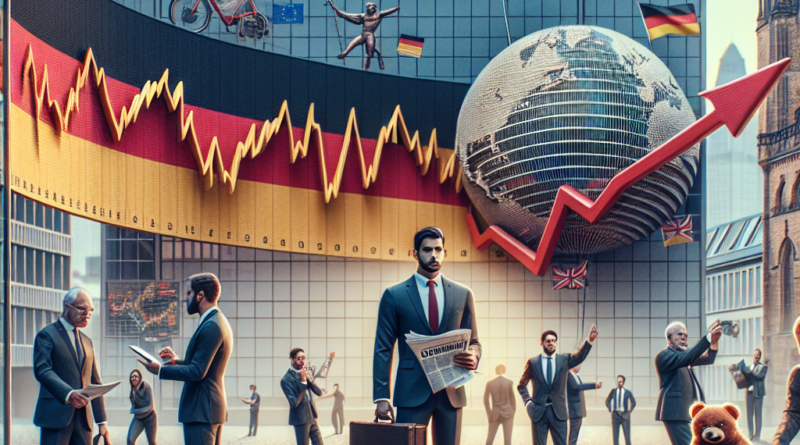Germany Loses Faith in Economic Recovery
“`html
Germany Faces Economic Setbacks
Another blow strikes Germany as it seeks to devise a plan for recovering from the ongoing economic crisis.
In September, investor morale has unexpectedly worsened, with economic sentiment plunging significantly.
The ZEW economic research institute recorded a mere 3.6 points in economic sentiment, a drastic drop from 19.2 points in August.
Meanwhile, the assessment of Germany’s economic situation continued to deteriorate, plummeting from -77.3 to -84.5, marking the lowest value since May 2020.
These indicators are the latest signs of the country’s complicated economic landscape, grappling with a severely weakened industrial base and the need for a complete overhaul of its production system.
“In such a context, the hope for a quick improvement in economic conditions is visibly fading,” commented ZEW President Achim Wambach.
This data adds to the stream of negative news flooding the country for weeks.
Declining Confidence in Germany’s Economy
The rapid decline in sentiment towards the German economy is a stark indication of worsening recovery prospects for the European powerhouse.
Economic indicators and domestic developments continue to project negative messages.
The outlook for Europe’s largest economy darkened after an unexpected decline in production during the second quarter and weak industrial performance.
Meanwhile, consumers remain cautious about their spending, despite incomes rising faster than prices.
Amidst these challenges, Volkswagen announced an end to a decade-long union agreement and is considering closing domestic factories due to falling demand.
Rival BMW has been forced to lower its earnings forecasts following a recall of 1.5 million vehicles with potentially faulty brakes.
Additionally, semiconductor giant Intel announced a two-year pause on construction work for its project in Magdeburg.
Future Prospects for the German Economy
Following a complete contraction in 2023, economists have begun to revise their forecasts downward for the current year.
Some predict stagnation or even a slight further decline.
While weak external demand is crucial to the crisis, structural dynamics, such as demographic decline, high energy costs, and increased competition from China, act as additional barriers to development.
Martin Ademmer, an economist at Bloomberg, noted that the unexpectedly large drop in the ZEW index adds to the recent wave of bad news for Germany’s economy, making another dip in GDP for the third quarter more likely.
With only modest expansion anticipated in the final three months of the year, economic activity could stagnate into 2024.
Robin Winkler, an economist at Deutsche Bank, added that current assessments are nearly as negative as they were at the pandemic’s onset in spring 2020.
Expectations for the economy are slightly stronger, but the optimism of spring is all but gone.
A gloomy autumn looms on the horizon.
“`




